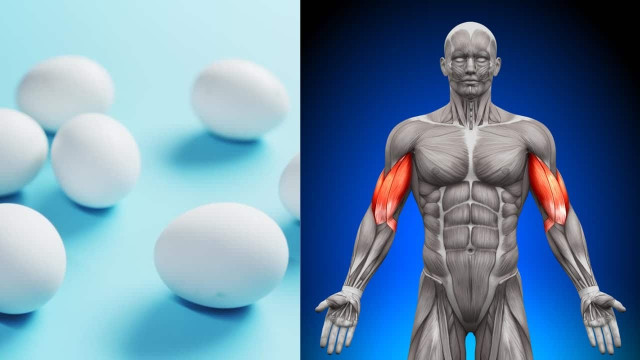Eggs are a nutrient-dense food packed with high-quality protein, essential vitamins, and minerals. They improve brain power, build muscles, boost immune system and more, according to nutritionists.
Eggs are said to provide all nine essential amino acids, supporting muscle growth and repair.
Rich in vitamins B12, D, and A, as well as antioxidants like lutein and zeaxanthin, eggs promote eye health, brain function, and a robust immune system.
The choline in eggs supports cognitive function and cell membrane integrity, while their protein content aids in weight management and muscle maintenance.
Additionally, eggs contribute to healthy skin and hair. Their versatility and nutritional benefits make them a valuable addition to a balanced diet.
According to a nutritionist, Niharica Rao from Cosmos Global states the 10 advantages of eating eggs in daily diet.
High-quality protein: Eggs are a complete protein source, meaning they contain all nine essential amino acids required by the body.
This makes them ideal for muscle repair, growth, and overall bodily function. A large egg contains about 6 grammes of protein.
Rich in nutrients: Besides protein, eggs are packed with vitamins and minerals. Vitamin B12 is essential for nerve function and red blood cell formation. Vitamin D supports bone health by enhancing calcium absorption. Selenium is an antioxidant that protects cells from damage. Choline is vital for cell membrane integrity and brain health.
Supports eye health: Lutein and zeaxanthin are carotenoids found in eggs that help filter harmful high-energy light waves. These antioxidants protect the retina from damage and reduce the risk of developing age-related macular degeneration (AMD) and cataracts.
Promotes brain health: Choline, found in significant amounts in eggs, is crucial for the synthesis of acetylcholine, a neurotransmitter involved in memory and learning. Adequate choline intake is linked to improved cognitive function and may support brain development in infants.
Boosts immune function: Eggs provide a variety of nutrients that support the immune system. Vitamin A helps maintain healthy skin and mucous membranes, which act as barriers to infection. Zinc is crucial for immune cell function and the overall immune response.
Aids in weight management: The protein in eggs promotes satiety, helping you feel full longer. This can lead to reduced calorie intake throughout the day. Studies suggest that including eggs in meals may help with weight loss and improve weight management.
Supports bone health: Vitamin D in eggs helps regulate calcium levels in the blood and promotes bone mineralisation. Adequate vitamin D intake is essential for maintaining bone density and reducing the risk of osteoporosis
Improves skin health: Vitamin A in eggs supports skin cell production and repair, which helps maintain healthy skin. Vitamin E acts as an antioxidant, protecting skin cells from oxidative damage and supporting overall skin health.
Enhances muscle mass: The high-quality protein in eggs supports muscle synthesis and repair, which is beneficial for building and maintaining muscle mass. This is particularly important for athletes and those engaged in strength training
Promotes healthy hair: Biotin, a B-vitamin found in eggs, is known to improve hair strength and prevent hair loss. Protein and other nutrients in eggs contribute to hair health by supporting growth and reducing brittleness.




















